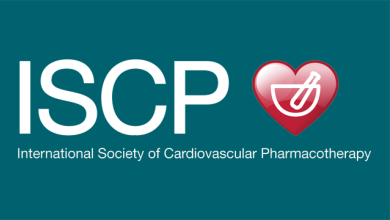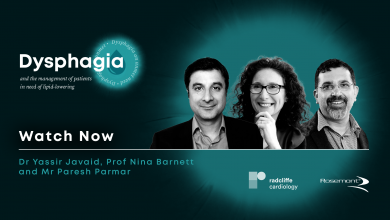Search results
Author(s):
Christos-Konstantinos Antoniou
,
Panagiota Manolakou
,
Nikolaos Magkas
,
et al
Added:
3 years ago
Cardiac resynchronisation therapy (CRT) has been a cornerstone in the treatment of select advanced heart failure cases since its introduction to our armamentarium in the early 2000s.1 Indeed, 30–60% of advanced heart failure patients exhibit evidence of dyssynchrony, when defined electrocardiographically or mechanically.2–4 The latter is a consequence of the former. CRT has several unique…
View more
Author(s):
Felipe Martínez
Added:
3 years ago
Author(s):
Michel Burnier
Added:
3 years ago
In 2007, the European Society of Hypertension (ESH) and the European Society of Cardiology (ESC) published their guidelines for the management of arterial hypertension.1 These guidelines covered in detail all aspects of the management of hypertensive patients, from the diagnosis and detection of early subclinical organ damage to the discussion of the various therapeutic strategies in essential…
View more
Author(s):
Antoni Martínez-Rubio
,
Román Freixa Pamias
Added:
3 years ago
Hypercholesterolemia has been known for several years to be a major risk factor in the development of atherosclerosis and consecutively cardiovascular disease. This epidemiological concept has been widely confirmed using different strategies that have reduced low-density lipoprotein (LDL) levels and cardiovascular events (morbidity and mortality) in primary as well as in secondary prevention, in…
View more
Targeting Two Sources of Cholesterol - An Advanced Treatment Approach to Lipid-lowering Management
Author(s):
Alberico L Catapano
Added:
3 years ago
Article
Author(s):
Roland E Schmieder
Added:
3 years ago
The primary goal in the treatment of hypertensive patients is to achieve the maximum possible reduction in the long-term total risk of cardiovascular (CV) and renal morbidity and mortality. In addition to the lowering of blood pressure (BP) per se, successful realisation of the primary goal of treatment also requires appropriate consideration of co-morbidities.1–3 Although there is some…
View more
Author(s):
Marinela Beznă
,
Gabriela Mitoaica
,
Lorena Ungureanu
,
et al
Added:
11 months ago
Targeting Two Sources of Cholesterol - An Advanced Treatment Approach to Lipid-lowering Management
Author(s):
Alberico L Catapano
Added:
3 years ago
Article
Author(s):
Yassir Javaid
,
,
Added:
1 year ago
This virtual round table series focuses on dysphagia and the management of patients in need of lipid-lowering medications. The first three sessions of this video series are presented by Dr Yassir Javaid (Northamptonshire CCG, UK), Prof Nina Barnett (London North West University Healthcare NHS Trust, UK) and Mr Paresh Parmar (London North West Healthcare NHS Trust, UK) followed by session four, a…
View more
Author(s):
Roland RJ van Kimmenade
,
James L Januzzi
Added:
3 years ago
Heart failure (HF) is currently achieving epidemic proportions, representing the single fastest-growing diagnosis among patients aged >65 years of age and the most common cause for hospitalisation in these patients.1 In addition to having a high incidence and prevalence, HF is associated with substandard clinical outcomes and with high rates of hospitalisation and death.1 Accordingly, great…
View more












 « First
« First